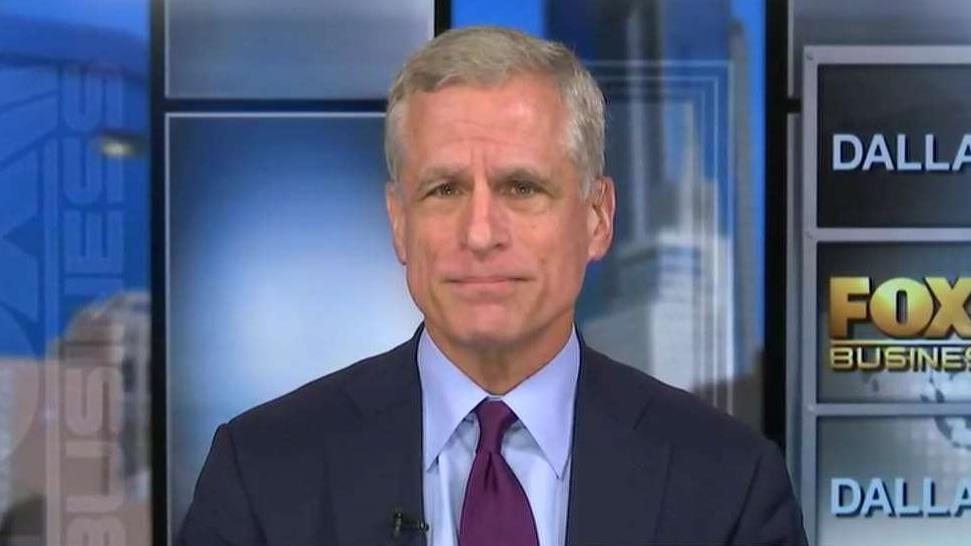Here’s what a robotic workforce could mean for you -- and your job
Increased automation in the workforce could mean different things for different employees, mostly depending on their level of education, according to Dallas Federal Reserve President Robert Kaplan.
“If you’re highly educated, you have a college education or better, all the studies show you’re probably adapting to this trend pretty well,” Kaplan said on Friday during an interview with FOX Business’ Maria Bartiromo. “Not without some pain, but you have the skills to adapt.”
Although the National Bureau of Economic Research estimates that hundreds of thousands of jobs have been sidelined by automation in the U.S. in recent decades, Kaplan suggested those who have been displaced are likely one of the 46 million workers in the U.S. who have a high-school education, or less.
In 2017, the Robotics Industries Association estimated that 250,000 robots were being used in the U.S., the third-highest in the world behind Japan and China.
A report published by McKinsey & Company last year indicated that as many as 800 million workers worldwide could be displaced by robots come 2030 -- but that some skills are more susceptible to replacement than others. For instance, machines will be likely be unable to replace humans in jobs that require managing people or any social interaction.
According to Kaplan, education is key to preparing for an influx of automated jobs.
“We need to improve, for starters, early childhood literacy, college readiness, math, science and reading scores,” Kaplan said. “We think that would help people adapt.”




















